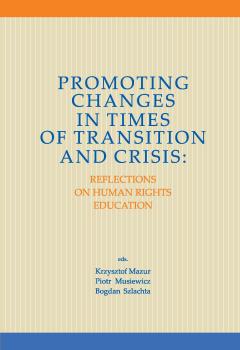Human Rights in the 21st Century. Challenging the Human Rights Language .......... 517
Streszczenie
The universality of human rights is a cornerstone of the contemporary internation-al relations. However the last decade provided a number of examples that it is not the only model for individual freedom and improvement of welfare. Reversely, alternative ap-proaches appeared, which proved that the improvement of the living conditions has noth-ing, or little to do, with incorporating the western values. Thus the human rights doctrine lost one of its most attractive and alluring components. The sources of this defeat lie in the discredit of western democracy in the developing countries. The emerging globalization brought rather growing than diminishing gap between the North and South. Additionally, the political and economic difficulties of the Western countries revealed the weakness of the political system based on individualism, religious freedom and free market, thus ex-posing the lameness of the Western political and economic proposals. Furthermore, the concept of human rights was included as part of the contemporary attempts for Western domination often considered as neo-colonization. The concept of human rights itself drifted away from its strongest nexus, which is the popular consent. Instead of embracing the whole society at national level, it is going through a process of transformation towards becoming an efficient tool for decomposi-tion of social structures based on ultimate individualism. These internal developments are confronted by the raise of new important players in the international relations who are much less demanding when it comes to political cooperation. They do not link the mutually profitable economic cooperation with political actions tending to improve the human rights record. For this reason they become much more attractive and desired partners than the Western democracies. Even more disturbing is the fact that the Western awareness of such developments doesn’t lead to stronger and more sound arguments, but to a kind of opportunistic adaptation in accordance with the new reality in the international relations rather than defense of its own values.The aim of this paper is to reflect upon this macro picture of the international rela-tions and to search for the intellectual reflection on perspective steps that can reinforce the concept of human rights in the XXI century reality.





